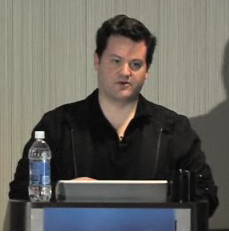A few years ago I wrote up silly little perl script (let’s call it script.pl) that would fetch a page from a site that returns a “random URL off the internet”. I needed a range of URLs for a test program of mine and just making up a thousand or so URLs is tricky. Thus I wrote this script that I would run and allow to get a range of URLs on each invoke and then run it again later and append to the log file. It wasn’t a fancy script, but it solved my task.
The script was part of a project I got funded to work on, that was improving libcurl back in 2005/2006 so I thought adding and committing the script to CVS felt only natural and served a good purpose. To allow others to repeat what I did.
Fast forward to late 2008. The script is now browsable via viewvc on a site that… eh, doesn’t have “.pl” disabled as a cgi extension in its config! The result of course is that each time someone tries to view the script using the web interface, the web server invokes the script locally!
All of a sudden I get a mail from someone, who apparently is admin or something of the site this old script was using, and he mentions that a machine on our network is hammering his site with many requests per second (38 requests/second apparently) and asked me to stop this. It turns out a search engine crawler has indexed the viewvc output several times, and now some 8 processes or so were running this script.pl and they were all looping around getting a page, outputting the URL, getting another page…
While I think 38 requests second is a bit low to even be considered a DOS, it certainly wasn’t intended nor friendly and I was greatly surprised when I slowly realized how it all came to end up like this! Man I suck! It reminds me of my other extension mess from just a few months ago…
Maybe I’ll learn how to do things right in the future when I grow up!
 Mark Nottingham held a very interesting one hour talk on the status of HTTP and the work on HTTPbis on a QCon conference recently, and luckily for us HTTP geeks there’s this great video/presentation from that.
Mark Nottingham held a very interesting one hour talk on the status of HTTP and the work on HTTPbis on a QCon conference recently, and luckily for us HTTP geeks there’s this great video/presentation from that.